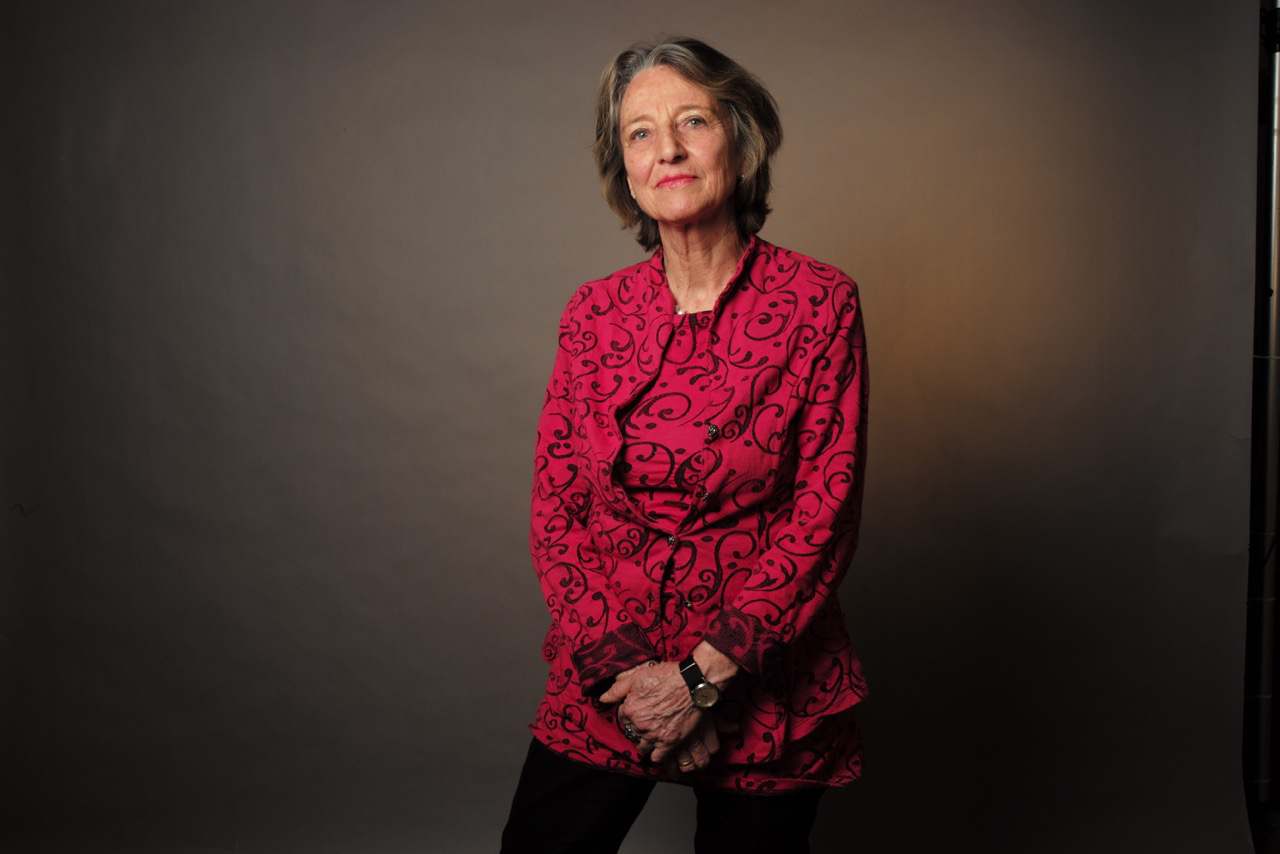
Regina is one of a few people fighting for the protection of the few remaining orangutans in Sumatra. Her experience and seemingly inexhaustible energy allow her to think holistically and to initiate such projects. The protection of the primates has become her life’s work and is part of a greater purpose to protect Sumatra’s natural habitats, and to develop models that allow plants, animals and humans to coexist. Coffee plays an important role in this.
Her impressive career started during her first trip to Indonesia in 1973. Straight after studying biology, with little experience but a lot of determination, she set out for Indonesia to take care of the orangutans in Sumatra. Her first impressions were shaped by the thundering tropical rains, which she used to capture on a small dictaphone and regularly send the recordings home.
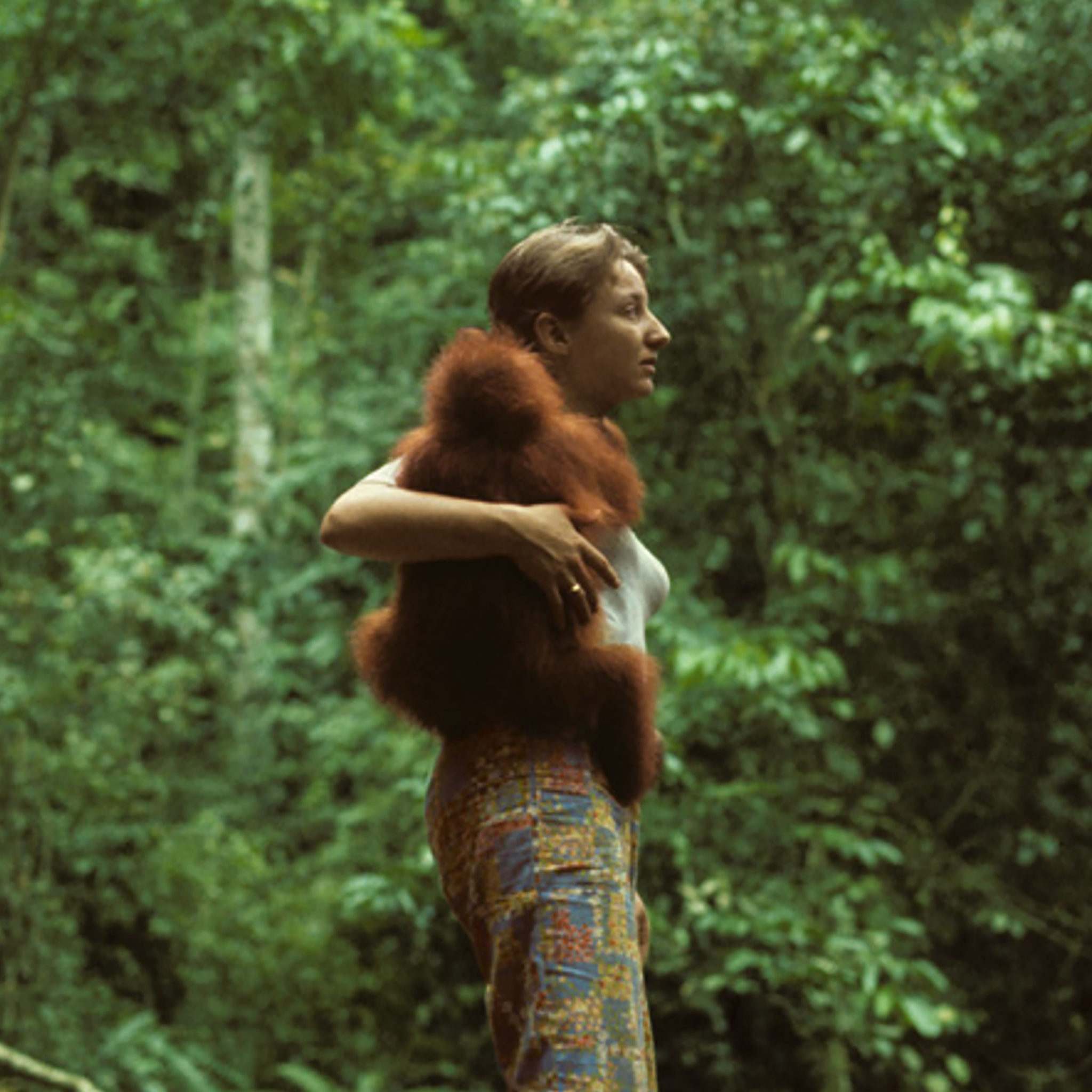
Together with a colleague from Switzerland, she set up the first project for the WWF and they moved into quarters in the country. They didn’t have a car, so it was a strenuous task to drive in a public bus with an orangutan baby on her arm to Medan, the neighbouring town. This is how the first rescue center for captured orangutans was set up. With a lot of skill, always explaining and creating awareness, the two succeeded in convincing owners of orangutans that the primates are not suitable pets and do not belong in cages, but in the rescue center or the rainforest.
I wondered: How has nature and society changed since the early 1970s? Regina is convinced that society has not just become “worse”. On the contrary. The inhabitants of Sumatra today have a better understanding of the vulnerability of the natural habitats that surround them. They are curious about nature and visit their local forests. A form of domestic tourism that has long been unimaginable is now an important pillar of the local economy. Of course, the pressure on the remaining rainforests is enormous. There is the continuously growing human population and the global demand for palm oil is seemingly insatiable. This holds dire consequences for primates: In the past century, around 92% of the original orangutan populations disappeared. A simple look at Google Maps reveals the sheer size of the plantations. Palm oil is still one of the cheapest vegetable oils available and is widely used by various industries for anything from frozen pizzas to detergents and biodiesel.
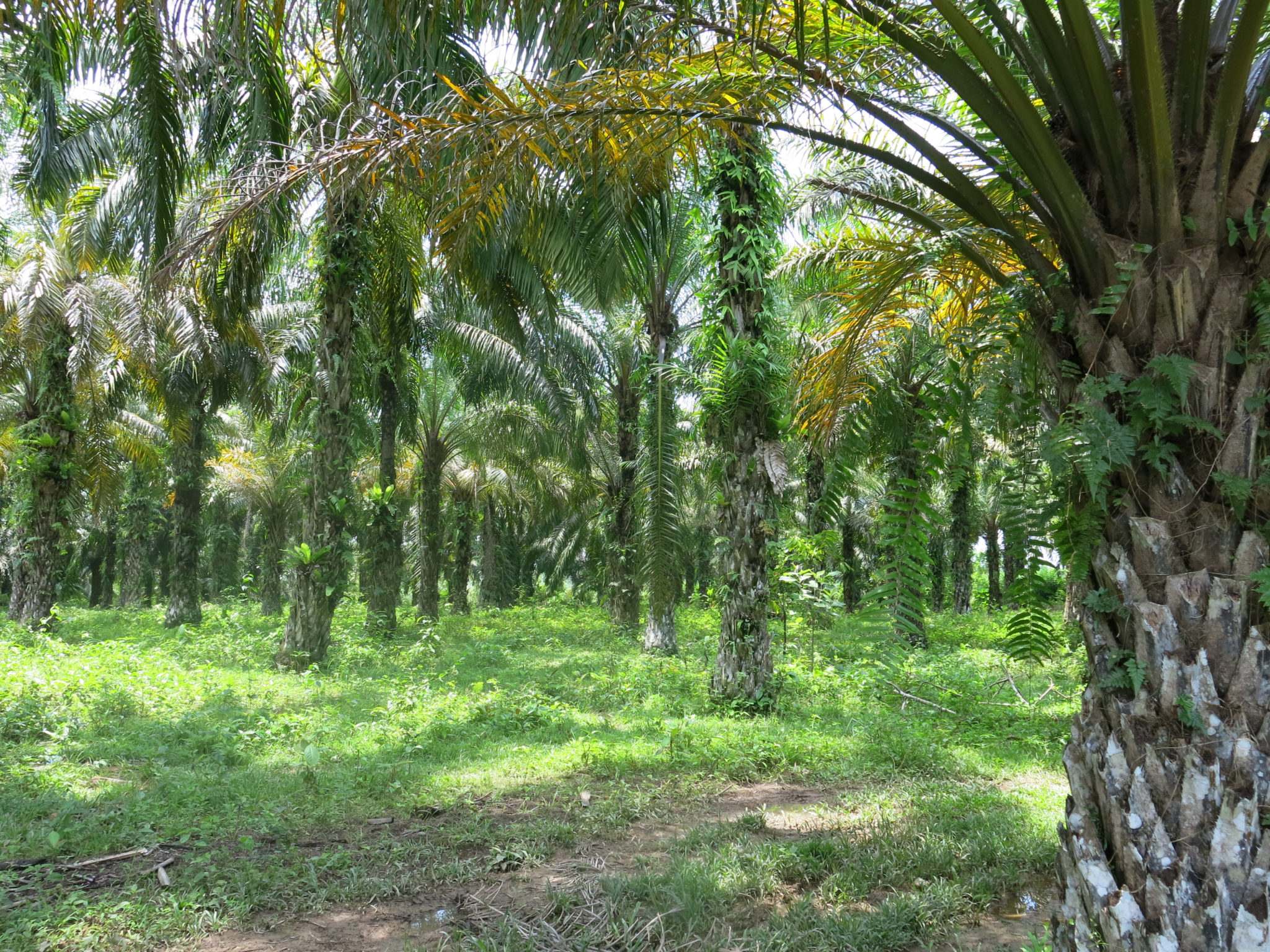
The initial cultivation of palm oil, for example by Lonsum (PP London Sumatra Indonesia Tbk), was relatively manageable, says Regina. The plantations were cultivated on the same areas for many decades, were expertly managed and also offered a retreat for animals. The problem with palm oil is that it displaces lowland rainforests, often with the help of illegal slash-and-burn. The ecological catastrophe, however, is the draining of large peat swamp forests, often near the coast, that have some of the world’s richest biodiversity. When these forests are drained, large mounts of CO2 are released, which is stored in the organic matter of the peat. Here is a staggering figure: Indonesia's peat has a CO2 storage capacity of around 54 gigatons (54,000,000,000 tons). Along with the Congo rainforest, this is the second largest CO2 peat reservoir in the world. Unfortunately, both areas are also the habitat of primates: Gorillas, chimpanzees and bonobos live in the Congo, and orangutans in Indonesia. No wonder Regina fights against the cultivation of palm oil and in Switzerland against the consumption of it. She wanted to determine whether the sustainable cultivation of palm oil is possible in principle on a plantation that was newly laid out on fallow land and managed according to RSPO guidelines. The findings of her 5-year-long scientific study showed that the biodiversity has decreased significantly, which confirms the theory that the current RSPO guidelines do not guarantee sustainable cultivation of palm oil.
On 7 March 2021, the Swiss will vote on the free trade agreement between Indonesia and Switzerland. In this agreement, the discounted import of a specific product is linked to production standards for the first time. The so-called “RSPO certificate” is intended to guarantee the sustainable cultivation of palm oil. While Regina generally welcomes the fact that sustainability criteria have been included in a free trade agreement for the first time, the guidelines themselves are falling short. She therefore finds it important to show consumers the weaknesses of the RSPO seal of approval in order to build up the necessary pressure to improve this certificate to ensure the cultivation of truly sustainable palm oil.
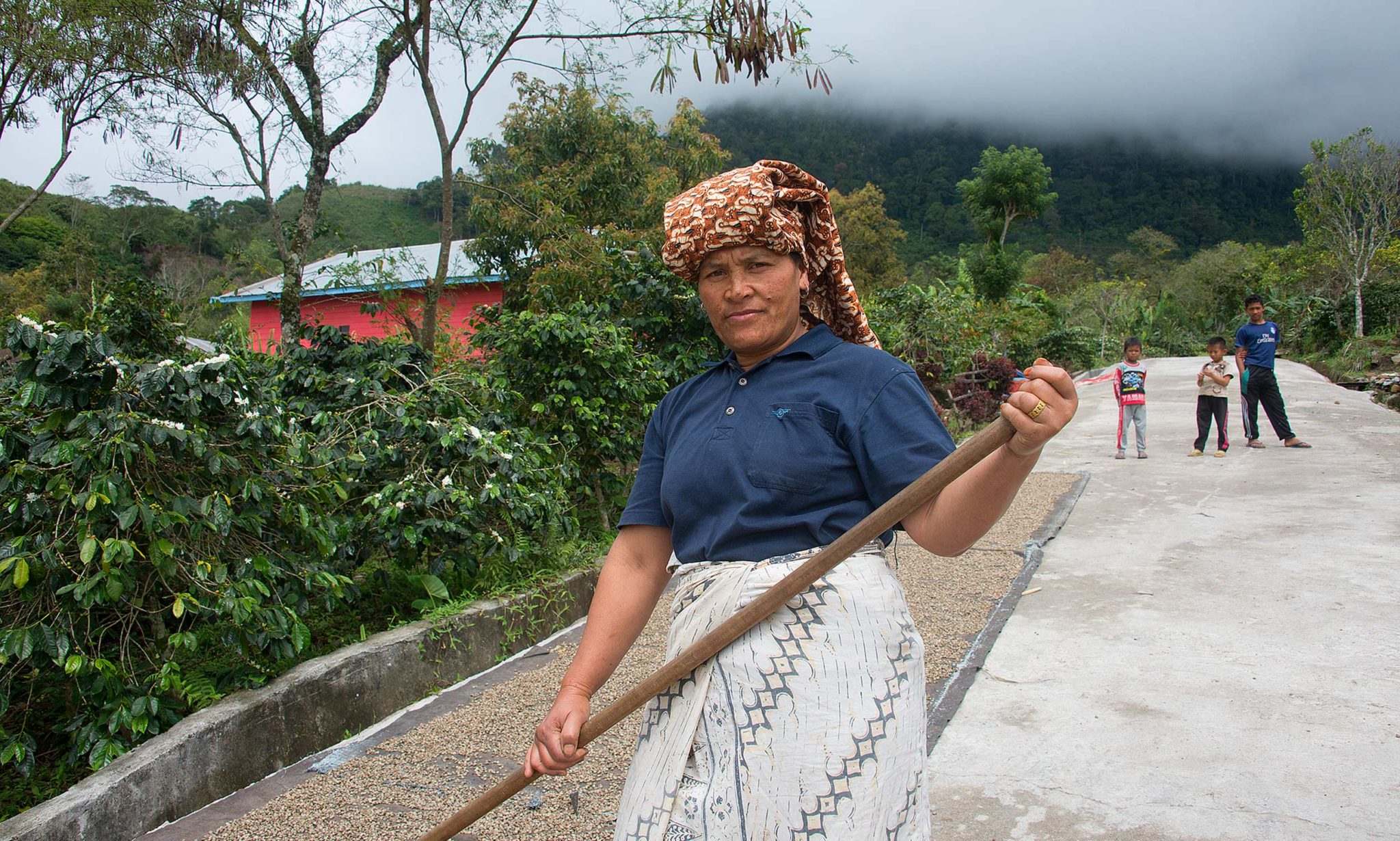
If palm oil is the main threat to the orangutan’s survival, why a coffee project?
After the war of independence in Aceh, which came to a sudden and unexpected end after the 2004 tsunami, the unique opportunity arose to develop new coffee projects on the Gayo plateau. The primates and the coffee farmers do not share the same habitat: Orangutans live in the lower lying rainforest, while our Arabica thrives in the moderate climate of the Gayo Highlands. However, the coffee plantations are near, sometimes adjacent to, the Leuser National Park and therefore form part of the same ecosystem. The project initiators were convinced that there was an opportunity to work together with the coffee industry. Orang Utan Coffee was created to ensure that this happens in harmony with nature. The farmers who take part in the program undertake to refrain from clearing the rainforests and from hunting, catching, and trading in protected animal and plant species. In return, the families receive a financial bonus of 0.50 EUR/kg. Another 0.50 EUR/kg goes directly to the Sumatran Orangutan Conservation Program (SOCP), which, among other initiatives, operates and develops the sanctuary for orangutans.
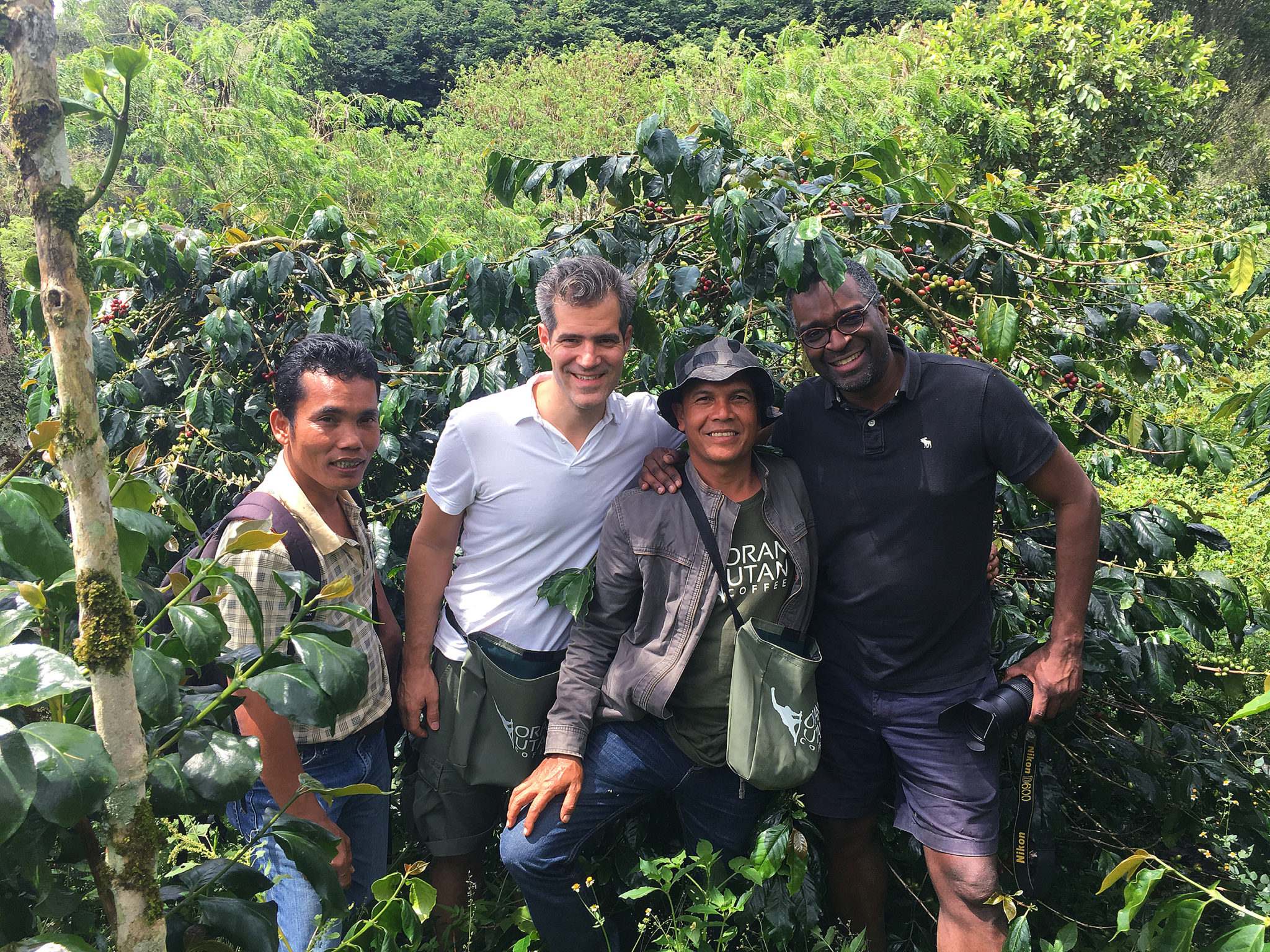
In recent years, the OUC farmer groups have worked hard to obtain European organic certification. The training courses for the organic cultivation of coffee, which are also organised by the project, take place at our very own Ecofarming Center.
At ViCAFE we have been working with Orang Utan Coffee since 2014. The biggest highlight so far has definitely been the crowdfunding campaign that we organised in 2017 with 100-days (new Crowdify) by Ronorp. In the end, CHF50,000 helped the Wih Bersih farmers’ group to build a coffee drying system. Everyone involved will continue to benefit from this investment in 2021. While the coffee farmers can dry their coffee under optimal conditions, we in Switzerland benefit from the wonderful, clean aromas of this Gayo coffee.
If you look beyond the coffee and ask yourself what Regina is all about, you realise that it is always about the preservation and protection of natural habitats. After all, the protection of the rainforest is not only necessary to protect the remaining primates and other animal and plant species: It is also a source of life for the people who live in Sumatra, and therefore also the coffee farmers who passionately produce our Orang Utan coffee. Last but not least, the tropical rainforests play a decisive role in the changing global climate, which is currently the focus of worldwide conservation measures. We are thrilled that our Orang Utan Coffee contributes to such big and important work.
